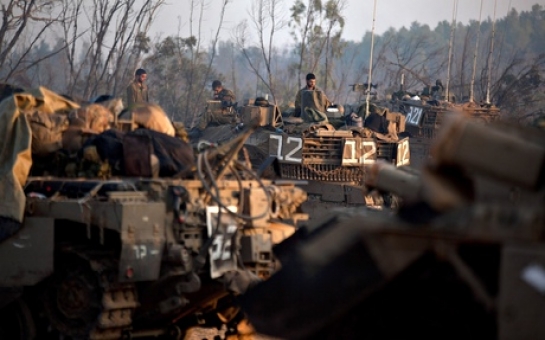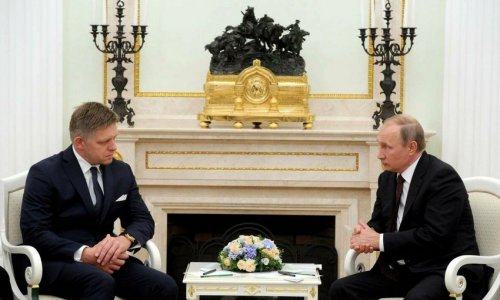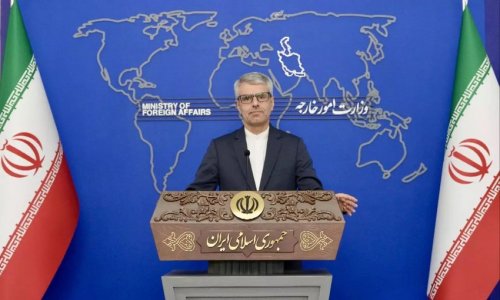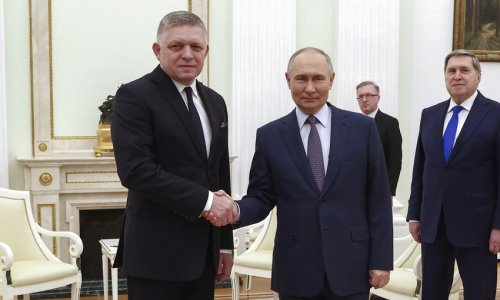As great as the tragic loss of life in Gaza and Israel is, what makes things even worse is that for all the efforts of US diplomats to stop the killing neither side seems terribly interested in ending the violence or finding a long-term solution to conflict. Stop me if you've heard this story before.Hamas has committed itself to a policy of attacking Israel with low-grade rockets, most of which are either shot down or fall harmlessly to the ground, fully aware that doing so will exact a terrible price on the Palestinian people.Israel is more than willing to do Hamas's bidding. Already they have killed more than 1,000 Palestinians in order to stop rockets that have harmed a handful of Israeli civilians.For Hamas, the current spate of fighting serves two purposes. It puts pressure on Israel to lessen the effects of the economic embargo on Gaza and it also provides Hamas with a symbolic political victory: strengthening the organisation's bona fides as the vanguard of Palestinian resistance against Israel. All of this bolsters its prestige vis-a-vis the increasingly feckless Palestinian Authority and its president, Mahmoud Abbas, who seems a bystander to the daily bloodletting.Hamas rejected an initial ceasefire proposed by Egypt because it didn't do enough to change the status quo in Gaza. On Friday, after days of painstaking negotiation to reach a 72-hour break in the fighting, it took only 90 minutes for Hamas to violate it, killing two Israeli soldiers and apparently capturing another. It was a raid that suggests a growing divide between Hamas's military wing on the ground in Gaza and its political leadership in Qatar, which negotiated the deal. Whatever the case, it seems certain to further escalate the violence.For Israel, which stumbled into a war that it clearly didn't want to wage, the issue is not one of fighting or not fighting, but, rather, how aggressively they should do it. There are those, particularly the prime minister, Benjamin Netanyahu, who want nothing more than to end this war before it spirals even more out of control, fearful of the increasing diplomatic costs and the potential for a full-scale humanitarian crisis in Gaza. But there is another side, what JJ Goldberg of the Jewish daily Forward calls the "smash Hamas factions". These are the far-rightwing members of Netanyahu's governing coalition who want to see Israel continue its Gaza offensive until Hamas is defeated or at the very least incapable of waging any serious attack on Israeli civilian targets. As the far-right Naftali Bennett, the country's economy minister, put it last week: "Don't give in and don't stop until you achieve that goal… strike at Hamas mercilessly… until demilitarisation, until a victory… until we finish the work."To be sure, this strategy would be both strategically infeasible and likely militarily impossible. Such a goal can only realistically be achieved with reoccupation by Israeli troops, a scenario that is unlikely to have much public support in Israel. Yet, the reported capture of an Israeli soldier and the violation of the ceasefire will put enormous pressure on Netanyahu to ramp up military operations. The consequences of that decision – and the extent to which Israel finds itself pulled into a deeper conflict with Hamas – is an open question.The more Israel pushes into Gaza the harder it will be to extricate itself. But for Netanyahu and his increasingly divided governing coalition, political pressure only moves in one direction – more violence.Traditionally, this is where the United States would enter from stage left, as Washington has done so many times in the past, to save both sides from themselves. In the present environment, however, that will be no easy task, in part because neither side seems very interested in heeding America's advice.Indeed, John Kerry, the secretary of state, has already watched two diplomatic efforts to end the violence blow up in his face. The first came two weeks ago when Israeli officials leaked a proposed ceasefire agreement from Kerry that it claimed had been rejected by the Israeli cabinet. In reality, the agreement appears to have been a list of ideas for a possible ceasefire, which was leaked to embarrass Kerry. The outrage among American officials at being used as a punchbag by the Israelis was palpable. The second failure was the breakdown of last week's ceasefire, which the secretary of state helped make possible.While it's unlikely that the indefatigable Kerry will be deterred, the inability of the US to stop the fighting has been a tough blow to US diplomacy and a further reminder that both Israelis and Palestinians are more interested in doing what they believe is in their narrow interests than they are in listening to the United States.In an ideal world, the punishment that Israel is inflicting on Hamas would give the Jewish state greater incentive, even impetus, to reach out to the Palestinian Authority in the West Bank, more secure in the fact that the hardline Hamas has been severely weakened. In that ideal world, the Israelis would realise that fighting wars in Gaza every few years is not a long-term strategy for success; and that the only enduring way to keep Israel secure is to seek a political resolution to the conflict.But ideal world and the Middle East are words that rarely, if ever, go together. And truth be told, even if Israel offered an olive branch it's not clear that Abbas could accept it, in light of the thousands of his countryman who have been killed by Israeli bombs.Instead, while further escalation is a possibility, the best and probably short-term solution is that the Palestinian Authority will be given control of the checkpoints between Gaza and Egypt. The closure will be lessened somewhat, which will give Hamas a moral victory (that plus the high casualties they inflicted on Israeli military forces) and Israel can step back behind the Gaza border after destroying Hamas's tunnels and claim they achieved their strategic objectives.But for all sides it will be a hollow, if meaningless outcome that will merely serve as the latest flare-up of fighting – and needless bloodshed – before the next one … and the one after that… and the one after that.So how does this end? Your guess is as good as mine. Increasingly, it's hard to escape the sad and horrifying reality that maybe, it never will.(theguardian.com)Bakudaily.az
Is the Arab-Israeli conflict going to be the war that never ends? - OPINION
World
16:40 | 04.08.2014

Is the Arab-Israeli conflict going to be the war that never ends? - OPINION
How does this end? It's a question that's been asked about the Arab-Israeli conflict for longer than most of us have been alive. In light of the bloodshed taking place in Gaza right now it's a question that seems as unanswerable as ever.
Follow us !










